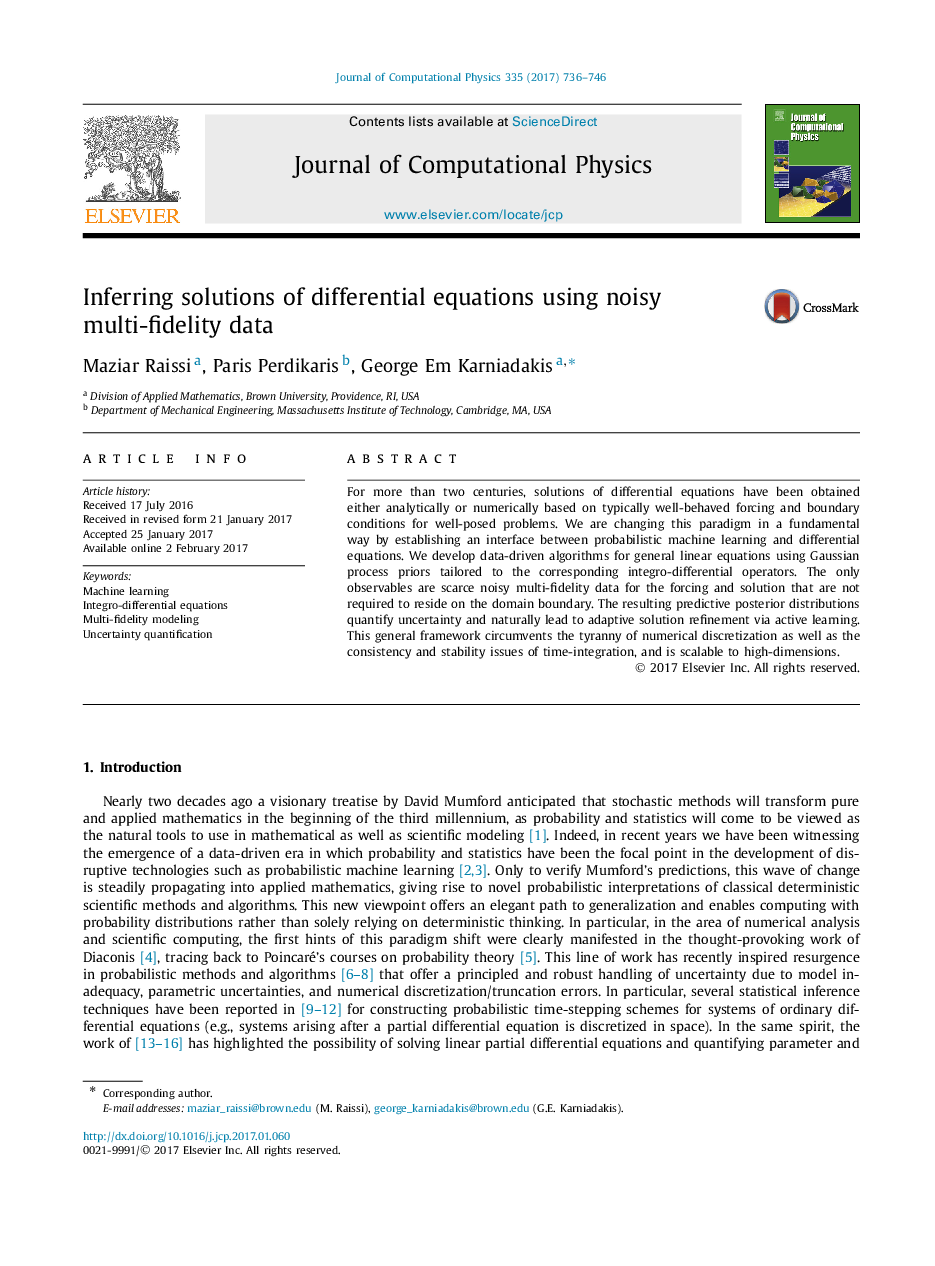| Article ID | Journal | Published Year | Pages | File Type |
|---|---|---|---|---|
| 4967548 | Journal of Computational Physics | 2017 | 11 Pages |
Abstract
For more than two centuries, solutions of differential equations have been obtained either analytically or numerically based on typically well-behaved forcing and boundary conditions for well-posed problems. We are changing this paradigm in a fundamental way by establishing an interface between probabilistic machine learning and differential equations. We develop data-driven algorithms for general linear equations using Gaussian process priors tailored to the corresponding integro-differential operators. The only observables are scarce noisy multi-fidelity data for the forcing and solution that are not required to reside on the domain boundary. The resulting predictive posterior distributions quantify uncertainty and naturally lead to adaptive solution refinement via active learning. This general framework circumvents the tyranny of numerical discretization as well as the consistency and stability issues of time-integration, and is scalable to high-dimensions.
Keywords
Related Topics
Physical Sciences and Engineering
Computer Science
Computer Science Applications
Authors
Maziar Raissi, Paris Perdikaris, George Em Karniadakis,
